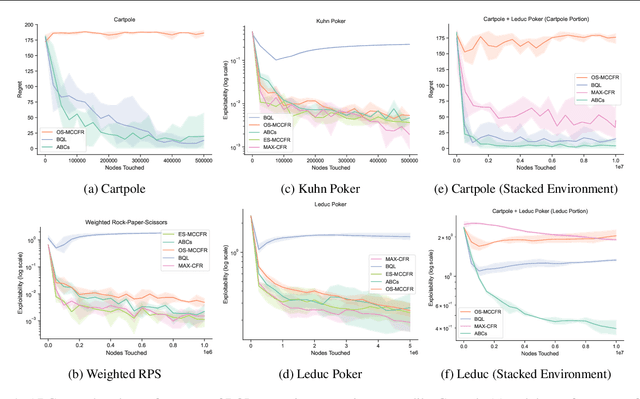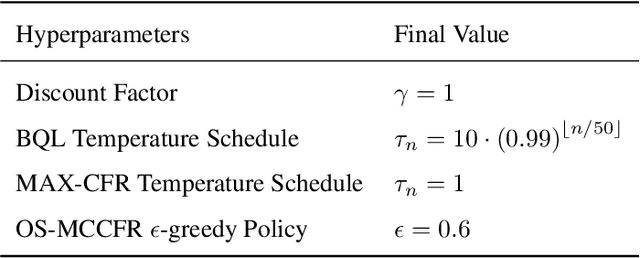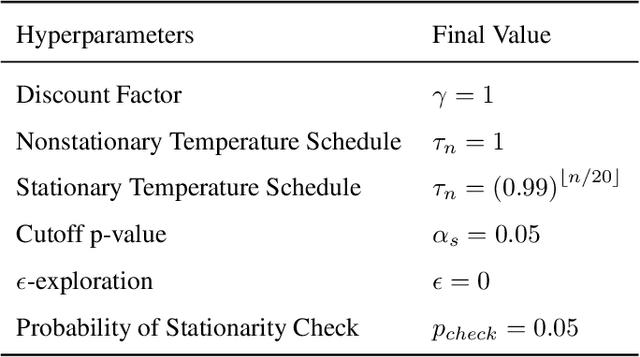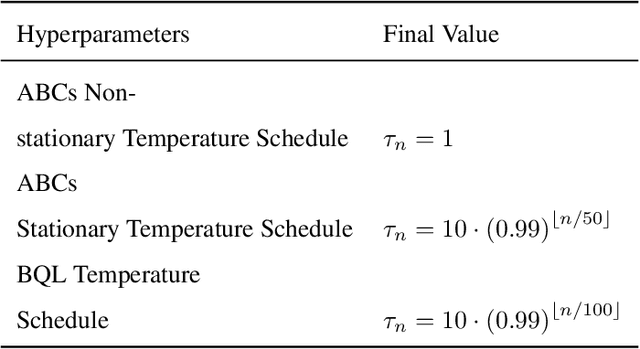Easy as ABCs: Unifying Boltzmann Q-Learning and Counterfactual Regret Minimization
Paper and Code
Feb 19, 2024



We propose ABCs (Adaptive Branching through Child stationarity), a best-of-both-worlds algorithm combining Boltzmann Q-learning (BQL), a classic reinforcement learning algorithm for single-agent domains, and counterfactual regret minimization (CFR), a central algorithm for learning in multi-agent domains. ABCs adaptively chooses what fraction of the environment to explore each iteration by measuring the stationarity of the environment's reward and transition dynamics. In Markov decision processes, ABCs converges to the optimal policy with at most an O(A) factor slowdown compared to BQL, where A is the number of actions in the environment. In two-player zero-sum games, ABCs is guaranteed to converge to a Nash equilibrium (assuming access to a perfect oracle for detecting stationarity), while BQL has no such guarantees. Empirically, ABCs demonstrates strong performance when benchmarked across environments drawn from the OpenSpiel game library and OpenAI Gym and exceeds all prior methods in environments which are neither fully stationary nor fully nonstationary.
 Add to Chrome
Add to Chrome Add to Firefox
Add to Firefox Add to Edge
Add to Edge